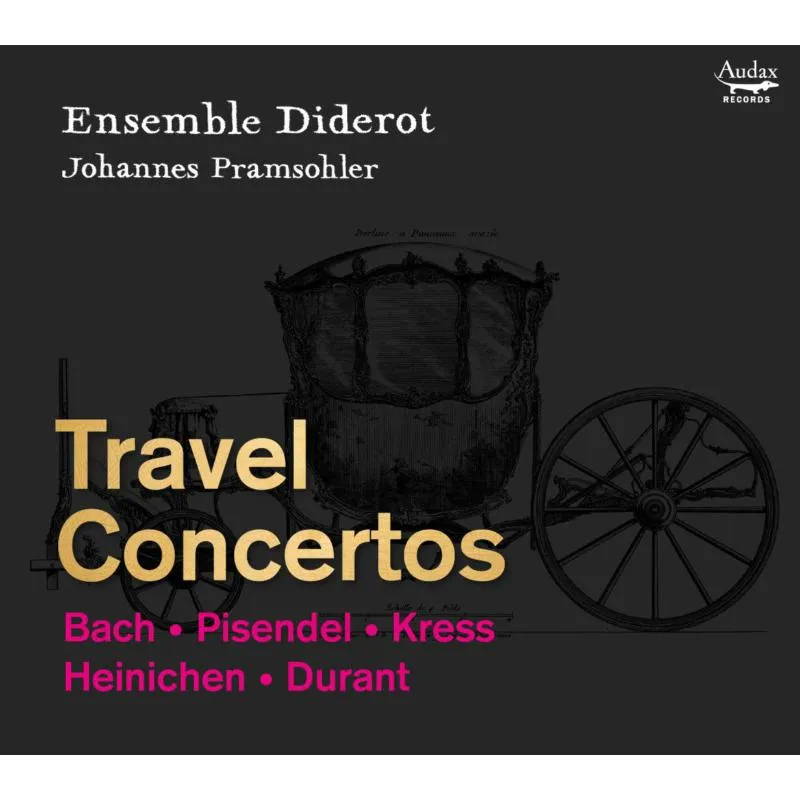
Travel Concertos Works by JS Bach, Durant, Heinichen, Kress and Pisendel Ensemble Diderot/Johannes Pramsohler (violin) Audax ADX11204 76:28 mins
The title doesn’t refer to a hitherto undiscovered musical category, but is rather a peg upon which to hang the sort of pieces that composers might have carried around in their executive briefcases, to show off and to perform at neighbouring courts and cities. The concept is imaginative and the chosen concertos, in all but one instance, well off the beaten track. Indeed, four of the six make justifiable claim to world-premiere recording status.
JS Bach is represented by the Fifth Brandenburg Concerto in the earliest of its versions, whose most immediately striking difference from the famous presentation autograph lies in the first movement harpsichord solo which is contained within 18 bars as opposed to the extended and more familiar 65. Johannes Pramsohler and his stylish équipe offer a lively, texturally lucid performance with sensitive flute playing by Alexis Kossenko. However, the opening movement feels a bit of a scamper, and is short on punctuation, notwithstanding moments of expressive delicacy, mainly to be found in the generously ornamented Adagio, to become Affettuoso in the autograph.
The two concertos by the Dresden Konzertmeister and violin virtuoso, Pisendel are appealing, the F major piece possessing a notably lyrical Larghetto. Heinichen’s concerto is a real Dresden court orchestra showpiece, with sparkling writing for flute, oboe, violin, theorbo and cello. The violin concerto by Johann Jakob Kress, carelessly identified as Krebs in the accompanying note, is a scordatura piece with a delightful closing Menuet. Paul Karl Durant’s concerto hints at early classicism and provides an undemanding conclusion to a colourful programme.
Nicholas Anderson